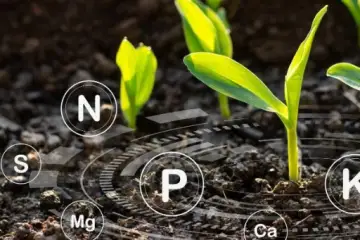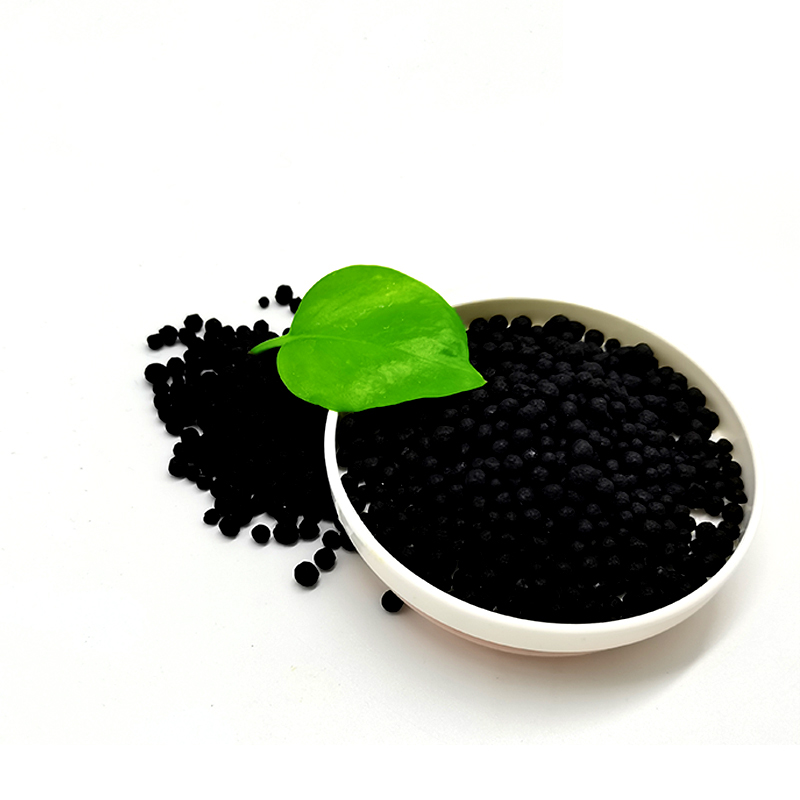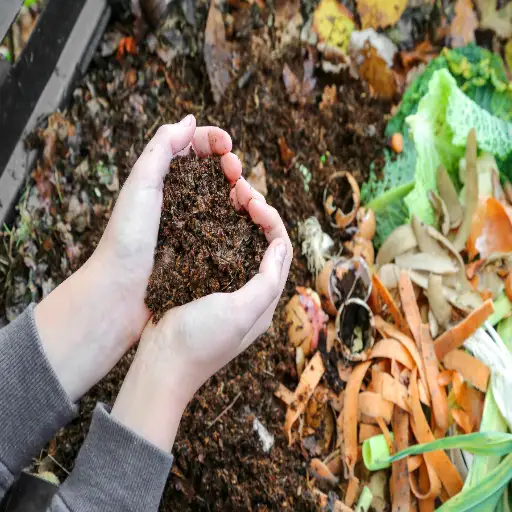Introduction to NPK Organic Fertilizer
NPK is an organical fertilizer that contains the three major elements such as nitrogen (N), phosphorus (P) and potassium(K), which play a vital role in the plants biological functions. These nutrients are well-known and are an essential in each garden or field. Therefore, NPK is an indispensable fertilizer in agriculture. Compare with synthetic fertilizer which has been processed synthetically with chemicals, NPK is derived from raw material such as plant residue, animal dung, and compost which have been decomposed by microorganisms and become fertilizers. It ensures gardeners or farmers restore their garden or field in safer and more sustainable ways.
Nitrogen is a major constituent of chlorophyll, critical to the process of photosynthesis used by plants to convert sunlight into plant energy. Phosphorus supports root, flower, seed, and fruit development, especially early in a growing season. Potassium manages metabolism, promoting plant growth and supporting water uptake for drought resistance and cold hardiness. ‘Plants prize these three,’ says Susan Mitchell, an agronomist with the Institute for Sustainable Agriculture. ‘NPK organic fertilizers deliver them in a slower, more balanced manner to plants than synthetics. They grow healthier and support beneficial life in the soil ecosystem.
In a dilemma of human food versus garden plant health, NPK organic fertilizers prove to be better option than synthetic fertilizers not only because they are natural for plants but also because they have less negative environment impacts. As environmental science Dr Harold Franklin points out, the use of NPK organic fertilizers markedly reduces run-off and the leaching of chemicals into waterways that are typical for their synthetic counterparts. Consequently, this natural food supplement for plants also feeds the living soil microbes and facilitates their work, helping to maintain the structure of organic garden ecosystems over time.
Benefits of Using NPK Organic Fertilizer in Sustainable Gardening
In addition to these benefits, the application of NPK organic fertilizer enhances soil fertility and has positive effects on its physical and biological attributes, such as texture, water retention, and ability to sustain beneficial microorganisms. These developments lead to a net benefit of a stronger soil ecosystem supporting plants longer than a conventional soil. Dr Lisa Monroe, a soil health advisor, notes that: ‘While providing nutrients to plants, NPK organic fertilizer allows gardeners to maintain and even improve soil fertility without the negative consequences sometimes attributed to chemical fertilizers, such as soil acidification and disproportionate nutrient accumulation.’
NPK organic fertilizer releases nutrients slowly, providing the plants with nutrition in a useable form during as long a time period as they need in order to mature. This steady supply of nutrients, constantly replenished from the slow-release fertilizer, allows for more uniform and stronger plant growth patterns.
‘Plants fed organic fertilizers often have increased vigour, and improved resistance to pests and disease,’ says the agricultural scientist Timothy Richards, an assistant professor at Utah State University in the US – all results stemming simply from a natural source of nutrition, like that found in an organic vegetable patch. Ornamental plants are often healthier and more vibrant with an injection of organic nutrients to enrich the soil, while humus is a ‘windfall for your plants’, aiding soil drainage and microbial activity to create a healthier soil that will allow for your plants’ requirements to be met.
NPK organic fertilizers also encourage biological diversity within a garden biome. Unlike many synthetic fertilizers that contain herbicides and pesticides, NPK organic fertilizers don’t contain harsh chemicals. This makes them safe for wildlife, as well as for beneficial insects like bees and earthworms. NPK organic fertilizers will likewise help reduce the carbon footprint of your gardening activities by discouraging the use of petroleum-based inputs and building the soil’s capacity to capture and store carbon. As the environmental activist Dr Aaron Kelly says: ‘Switching to NPK organic fertilizer is a proactive step towards sustainable gardening practices that promote local wildlife and address climate change.’、

Practical Application Tips for NPK Organic Fertilizer
When and how often to apply NPK organic fertilizer for optimal results
The timing and frequency of your applications will dictate plant vigor and production. It is best to apply NPK organic fertilizer at the beginning of the season to get your plants established and in the middle of the season when peak growth and productivity are taking place for the garden. “Depending on a plant’s specific requirements, applying NPK organic fertilizers in early spring and again in mid-summer coincides with most plants’ seasonal growth cycles,” says Dr. Natalie Barrett, horticulturist and expert with the Michigan State University Extension. Because NPK organic fertilizers’ slow-release nature often leads to fewer fertilizer applications over the life of a garden bed, it not only reduces labor but also reduces long-term product usage.
Techniques for applying NPK organic fertilizer: Broadcasting, banding, and foliar sprays
Depending on the garden layout and disease-prone plants, different application methods can be used.
So, broadcasting is a preferred technique when dealing with big areas and is performed prior to sowing. In broadcasting, the fertilizer is scattered equally over the soil surface and is, most of the time, followed by tilling to mix the fertilizer into the top layer of the soil.
They also have the potential to be more precise; more like giving fertilizer to some individuals by the spoonful instead of dumping it in their general direction and hoping for the best. One method of applied fertilizer is called banding, where one puts the fertilizer in strips along the rows or around individual plants.
Through foliar sprays, you use a diluted solution that you apply directly to the plant leaves. This is a great way to quickly introduce nutrients into the plant especially when you are wondering why your poor plant is struggling and you want a quick fix. It seems like it would be great to just give it an adequate dose of nutrients right there.
Tailoring fertilizer application based on plant types and growth stages
The needs of different plants vary, such that an organic fertilizer formula in terms of the NPK derives from plant needs. “Leafy vegetables need more nitrogen, root crops need a higher percentage of phosphorus,” Dr. Barret told me. The formulation also takes into consideration the developmental stage of the plant; seedlings, for instance, can be more susceptible to salts found in fertilizer, so a gentler formulation might be wanted. Soil tests can also help identify the particular nutrient deficiencies in the garden soil.
Dr. Barret also emphasizes the benefit of mulching, which strikes at the heart of the principle of succession: In mulching, you take the stripped nutrients in plants from the soil when you harvest them, and leave them behind in the mulch.
Overcoming Challenges in Using NPK Organic Fertilizers
However, NPK in various organic fertilizers are highly variable, depending on raw material sources. It is essential to utilise well-composted organic fertilizer where nutrient release is stabilised. ‘Testing your fertilizer for its nutrient content can be a practical step to ensure that your crops get what they need,’ suggests Carl Benson, a soil scientist. Because of their slow release of nutrients, organic fertilizers won’t meet the demands of rapid crop growth in the short-run, and, in some instances, more organic liquid fertilizers will have to supplement the plant needs.
Maintaining a nutrient supply that is balanced for plant health means recognising what your garden’s soils and plants require most, as well as how much they already have available. Regular soil testing can suggest nutrients that your plants might need further, says Dr Benson. ‘Soil tests can provide important details for gardeners on what additional amendments might be needed to fine-tune the nutrient profile to suit particular plant needs,’ he says.
A pine mulch may change in character as organic acids break it down into a humus-like surface layer A combination of organic materials can help to fine-tune nutrient balances, too. ‘There are less expensive organic sources for greater precision and control,’ Hole indicates. For instance, using bone meal to increase the soil’s phosphorus levels or greensand to increase potassium (another essential nutrient).
With NPK organic fertilizers, good testing of the soil before and during gardening and adjustments are critical to success. Soil tests should be conducted at least annually during the growing season to check nutrient levels and pH, which determines how available nutrients are to plants. ‘Adjusting soil pH with lime or sulfur, depending upon need, can greatly enhance nutrient uptake,’ says Dr Benson. It’s also important to know the cation exchange capacity (CEC) of your soil — how well it holds nutrients, and therefore determines the availability of nutrients to plants. Adding organic matter to your soil will improve CEC and help to hold nutrients as well. That should decrease the need for frequent re-applications.

The Future of Organic Fertilizing
Photo courtesy Dan CharlesAt the same time that growers require higher quantities and blends of organic NPK fertilizer, scientists are developing more and more advanced formulations to reduce environmental impact and improve the efficacy of fertilizers at the same time. Angela Hart, an environmental scientist at Green Tech Innovation Center, describes some of the latest formulas being developed: ‘We are beginning to see new formulations that combine traditional organic materials and add biochar and mycorrhizal fungi to the mix to improve soil health and nutrient-use efficiency to lower entropy and reduce nutrient run-off into water sources and also result in a lower carbon footprint.’
NPK organic fertilizers can also benefit from technological advances. Precision agriculture tools such as soil sensors and drones are used to map fertility variations in the soil and achieve targeted fertilizer applications. Says Dr Hart: ‘It has the effect of reducing waste and improving efficiency of nutrient uptake.’ Meanwhile, apps and software that analyse soil data are helping farmers and gardeners understand what their soil needs and how much and what kind of fertilisation is required in certain parts of the field.
The regulatory landscape is also creating favourable conditions for the adoption of organic fertilising: ‘There is a trend where governments are tightening regulations on synthetic fertilizers, seen as unsafe for the environment, and this will provide a major boost for organic fertilizers,’ he said. Dr Hart foresees an enormous surge in the cultivation of organic fertilizers over the coming decade. ‘As regulations become stricter and the general awareness of the public about environmental issues increases, we can expect a major swell in demand for organic fertilising,’ he said.
The trend towards producing local, organic foods is also set to further increase demand for NPK organic fertilizers, as consumers buy into small local farming operations and seek out organically grown produce.
Conclusion
For gardeners and farmers who care about finding sustainable approaches to the challenges of farming, NPK organic fertilizers are a valuable way to improve plant health and the health of the environment at large. By helping to improve the soil, they can help us be better stewards of the Earth, as well as point the way to a more robust and sustainable food system that requires more than just engineered genetics or pesticides to thrive. Their benefits go far beyond the immediate vicinity of the garden – or the farm.
Such use can improve the overall ecological health of the landscape, reducing biochemical run-off, and enhancing the biological diversity of the soil. All of this adds up to richer soil, and better quality food.
As Dr Angela Hart summarises: ‘When we use NPK organic fertilizer, we aren’t only contributing to [plants’] growth and development; we are also providing agricultural development whose overall process is in harmony with the natural environment.’ This is a holistic and comprehensive concept related to food security and environmental conservation, which both suffer from a global crisis at the moment.
To summarize, the efforts of gardeners and farmers to use NPK organic fertilizers is very important because it could improve a part of environment. As a result of their irrational behavior of using ammonium phosphate, they not only destroy their crops but also the environment. Therefore, by adopting such kind of environmentally organic fertilizer product, they can promote the health of our crops and environment, and forward to a sustainable agricultural landscape for many years to come.
Here are some valuable references and sources for NPK organic fertilizer:
- Grow It Organically discusses various types of balanced organic NPK fertilizers, including plant-based options like alfalfa meal and soy meal, as well as manure-based options. They also mention the benefits of worm castings as a fertilizer due to their quick-release nutrients and beneficial microbes .
- HappySprout provides an in-depth look at the significance of the NPK ratio, explaining how each component supports plant health. For instance, potassium in fertilizers helps plants maintain turgor and resist diseases, and is available in various organic forms.
- BAC Online offers insights into different types of organic NPK fertilizers, including those made from a mix of plant and manure-based materials. They emphasize the gradual nutrient release of organic fertilizers and their benefits to soil quality and long-term plant health .







